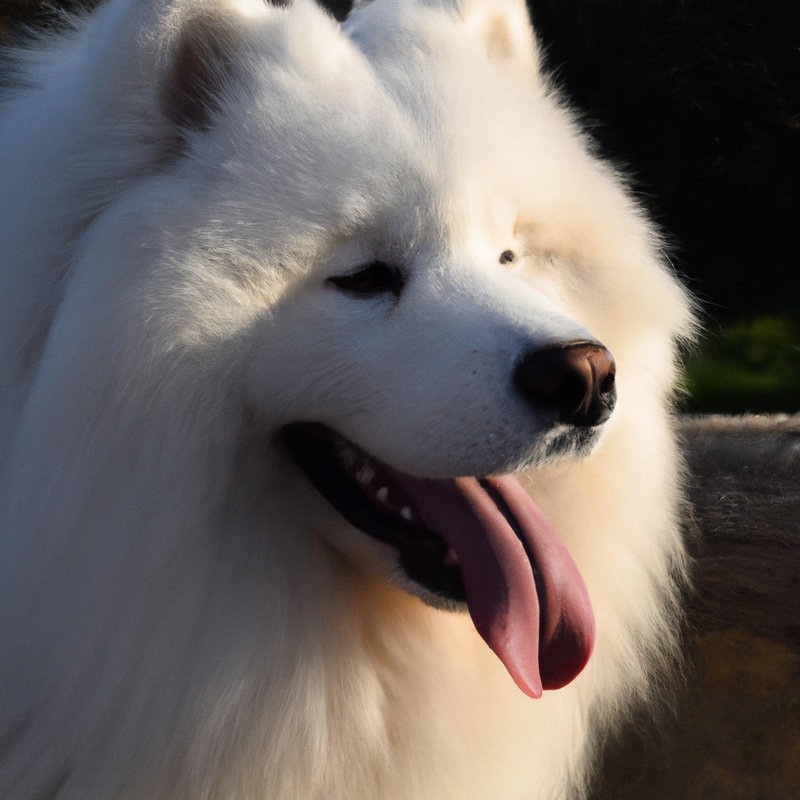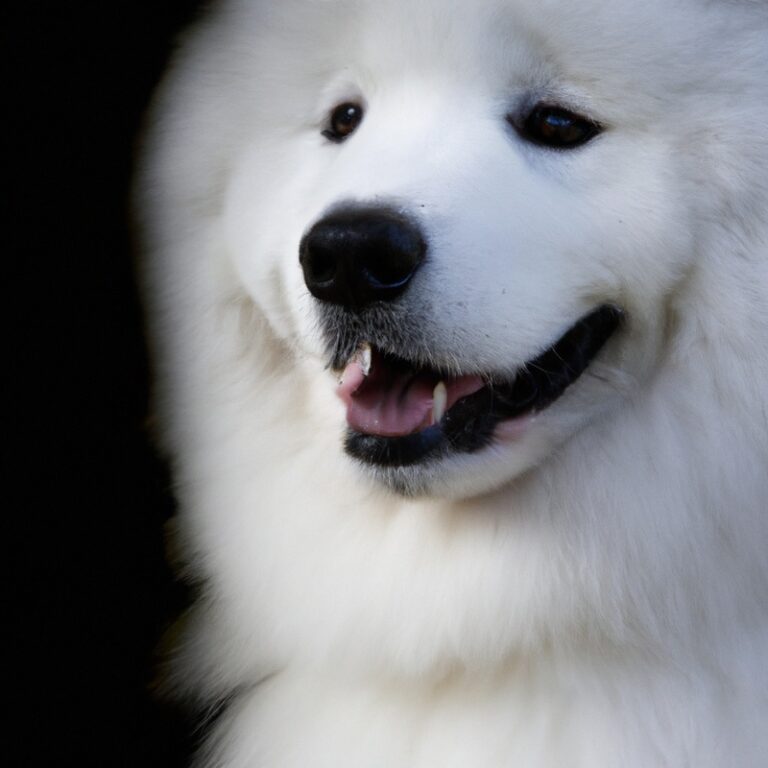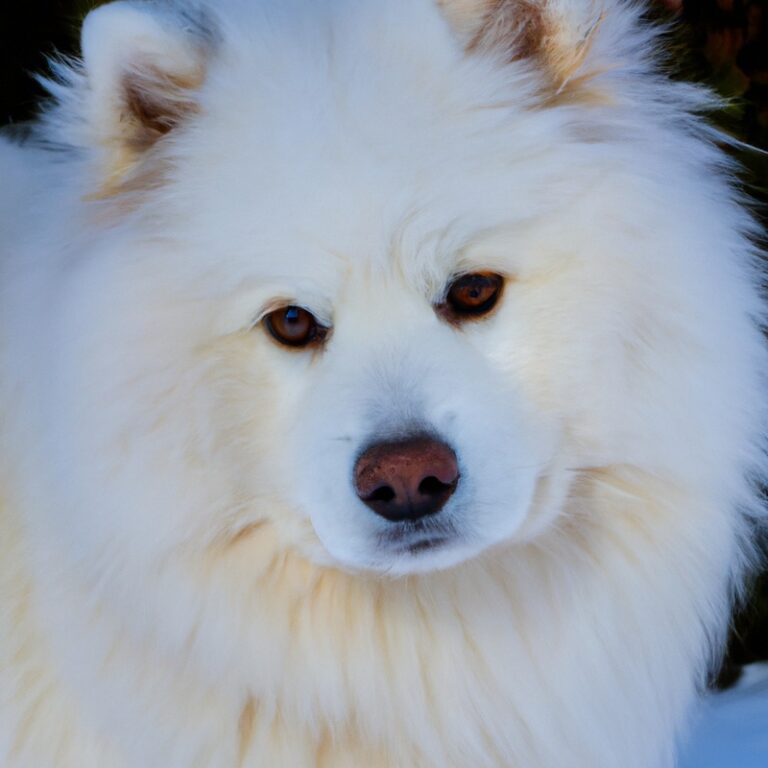How To Handle Samoyed Mouthing Behavior?
Key Takeaways:
- Consistent and positive reinforcement training is key in addressing Samoyed mouthing behavior.
- Provide ample physical and mental stimulation to help reduce Samoyed mouthing tendencies.
- Redirecting your Samoyed’s attention to appropriate chew toys can help discourage mouthing behavior.
- Seek professional help if the mouthing behavior persists or becomes aggressive.
Are you struggling with your Samoyed’s mouthy behavior?
Those adorable fluffballs can sometimes use their mouths for exploration, play, or even to communicate their needs.
But when does that behavior cross the line?
As an expert in dog behavior, I’m here to help you understand Samoyed mouthing behavior, its common reasons, and whether it’s normal or not.
In this article, I’ll share practical tips for managing this behavior, including establishing rules, providing appropriate chew toys, and redirecting the behavior.
Stay tuned for answers to frequently asked questions and potential health issues.
Don’t worry, your Samoyed will be gentle in no time!
| Pros | Cons | |
| 1. Training |
|
|
| 2. Distraction |
|
|
| 3. Chew toys |
|
|
| 4. Socialization |
|
|
Understanding Samoyed Mouthing Behavior
What is Samoyed mouthing behavior?
Samoyed mouthing behavior refers to a common trait in Samoyed dogs where they use their mouths to explore and interact with the world around them. This behavior is characterized by gently biting or grasping objects, people, or even themselves.
It is important to note that Samoyeds have a soft bite and rarely use excessive force.
Mouthing is their way of engaging and expressing their curiosity or playfulness. However, it is essential to teach them appropriate boundaries and redirect their mouthing towards appropriate chew toys or objects to prevent any accidental injuries.

Common reasons for Samoyed mouthing behavior
Samoyeds are known to engage in mouthing behavior due to a few common reasons:
- Teething: Just like puppies, young Samoyeds may mouth as a way to soothe their gums during the teething process. It’s important to provide them with appropriate chew toys to redirect this behavior.
- Exploration: Samoyeds use their mouths to explore and interact with their environment. They may lick, nibble, or gently bite things as a way to gather information about the world around them.
- Attention-seeking: Some Samoyeds may mouth as a way to get attention from their owners. If they receive a reaction or interaction when they mouth, they may continue this behavior.
- Playfulness: Samoyeds are playful dogs by nature, and mouthing can sometimes be a part of their play behavior. They may grab hands or clothes gently during play.
Understanding these common reasons for Samoyed mouthing behavior can help you address and manage it appropriately. Training, providing suitable chew toys, and redirecting their attention can go a long way in helping them develop better habits.
Is Samoyed mouthing behavior normal?
Yes, Samoyed mouthing behavior is normal.
Samoyeds have a tendency to use their mouths to interact with their environment, which includes gentle mouthing.
It is a natural behavior for them and is often seen as a way of showing affection or playfulness.
However, it is important to discourage aggressive or excessive mouthing through positive reinforcement training.
Providing them with appropriate chew toys can also help redirect their mouthing behavior to more acceptable outlets.
Potential issues with Samoyed mouthing behavior
Samoyed mouthing behavior can present potential issues for owners. It is essential to address this behavior early on to prevent problems.
One issue is that the mouthing can become more forceful over time, leading to accidental injuries.
Additionally, Samoyeds have a tendency to explore the world with their mouths, which can result in damage to furniture, clothing, and other items. Another issue is that excessive mouthing can become a habit that is difficult to break.
It is important to provide appropriate chew toys and redirect their attention to discourage mouthing.
Regular training and positive reinforcement can help address these potential issues.
Tips for Managing Samoyed Mouthing Behavior
Establishing consistent rules and boundaries
Establishing consistent rules and boundaries is key when it comes to managing Samoyed mouthing behavior.
Here are some tips to help you set clear expectations for your dog:
- Use consistent verbal cues and hand signals to communicate what is allowed and what is not. For example, say “No” firmly and use a stop hand gesture when your Samoyed starts mouthing.
- Reinforce positive behavior by rewarding your dog with treats, praise, or playtime when they choose not to mouth. This helps them understand what behavior is desired.
- Be consistent in enforcing consequences when your Samoyed does mouth. Withdraw attention, redirect their focus, or temporarily remove them from the situation to reinforce that mouthing is not acceptable.
- Create a safe and structured environment for your dog, providing them with appropriate chew toys and interactive activities to redirect their mouthing behavior.
Providing appropriate chew toys and outlets for energy
Providing appropriate chew toys and outlets for energy is essential when managing Samoyed mouthing behavior.
To prevent them from using your hands or furniture as chew toys, offer them a variety of durable and safe toys to chew on.
Hard rubber toys or dental chews can be effective.
Additionally, make sure your Samoyed gets enough exercise and mental stimulation through daily walks, playtime, and puzzle toys.
Providing these outlets for energy will help redirect their mouthing behavior in a positive way.
Redirecting the mouthing behavior
To redirect Samoyed mouthing behavior, it’s important to provide them with appropriate chew toys and engage in interactive play. Whenever your Samoyed starts mouthing, gently remove your hand and replace it with a chew toy.
Encourage them to chew on the toy instead.
Consistency is key, so be patient and keep redirecting their attention to the toys. Additionally, positive reinforcement training can help teach them that mouthing is not acceptable.
Consistently praising and rewarding them when they refrain from mouthing will reinforce the desired behavior.
Consistency and positive reinforcement in training
Consistency and positive reinforcement are key in training your Samoyed. By being consistent in your commands and expectations, your dog will learn faster and be more responsive.
Use positive reinforcement techniques, such as treats and praise, to reward good behavior and motivate your dog.
Focus on rewarding the desired behaviors rather than punishing the undesirable ones. This will create a positive association and make training more enjoyable for both of you.
Maintain a consistent training schedule and be patient – training takes time and consistency is key.
Remember to always reward your dog for their efforts and progress.

Seeking professional help if needed
If you’re struggling to manage your Samoyed’s mouthing behavior despite your best efforts, it may be time to seek professional help.
A qualified dog trainer or animal behaviorist can provide expert guidance tailored to your specific situation.
They can assess your Samoyed’s behavior, identify any underlying causes, and create a customized training plan.
Remember, seeking professional help doesn’t mean you’ve failed as a dog owner.
It simply shows your commitment to finding the best solution for you and your furry friend.
Frequently Asked Questions about Samoyed Mouthing Behavior
How long does Samoyed mouthing behavior last?
Samoyed mouthing behavior can last anywhere from a few weeks to several months. It typically occurs during their teething stage, which can start around 4 months old and last until they are around 7 months old.
During this time, they may chew on objects and even nip at hands or clothing.
Consistent training, redirection, and providing appropriate chew toys can help manage and decrease the duration of this behavior.
Can Samoyed mouthing behavior be prevented?
Samoyed mouthing behavior can be prevented with proper training and socialization from a young age.
Consistent positive reinforcement and redirecting their attention to appropriate chew toys can help discourage the mouthing behavior.
Teaching them commands like “leave it” and “drop it” will also be helpful in managing their mouthiness.
Providing plenty of mental and physical stimulation through exercise and interactive playtime can also help reduce the frequency of mouthing behavior.
What should I do if my Samoyed’s mouthing is aggressive?
If your Samoyed’s mouthing is aggressive, it’s important to address the behavior promptly. Here’s what you can do:
- Stay calm: Reacting negatively or becoming tense can escalate the situation. Stay calm to avoid encouraging the aggression.
- Redirect their attention: Provide an appropriate chew toy or bone to redirect their mouthing behavior onto something acceptable.
- Distract and reward: When your Samoyed starts mouthing you aggressively, redirect their attention with a treat or a toy. Reward them for choosing the alternative behavior.
- Consistency is key: Be consistent in your response to their aggressive mouthing. Establish clear boundaries and enforce them consistently.
- Seek professional help: If the aggression persists or escalates, consider seeking guidance from a professional dog trainer or behaviorist who specializes in aggressive behavior.
Remember, it’s important to address aggressive mouthing behavior promptly to ensure the safety of both you and your Samoyed.
Is mouthing behavior the same as biting?
Mouthing behavior is not the same as biting.
Mouthing is when a dog gently uses its mouth to explore or play, usually without causing harm.
It’s a natural behavior for puppies, and they may do it to communicate or relieve teething discomfort.
On the other hand, biting involves using force and can cause injury.

Are there any health issues associated with Samoyed mouthing behavior?
Samoyed mouthing behavior, which involves the dog gently gripping a person’s hand or arm with their mouth, usually does not pose any significant health issues. However, it’s essential to train your Samoyed to have a soft mouth to prevent accidental injuries.
Regular dental care, such as brushing their teeth and providing chew toys, can also help maintain good oral hygiene for your furry friend.
As with any dog, it’s crucial to monitor their behavior and ensure they engage in appropriate mouth behaviors to prevent any potential health concerns.
Final Verdict
Understanding and managing Samoyed mouthing behavior requires consistency, patience, and appropriate outlets for their energy. It is important to establish consistent rules and boundaries, provide appropriate chew toys, and redirect their mouthing behavior.
Positive reinforcement and seeking professional help, if necessary, can also contribute to effective management.
It is important to note that while mouthing behavior is normal for Samoyeds, aggressive mouthing should be addressed promptly. By following these tips, you can ensure a happy and well-behaved Samoyed companion.
Remember, with the right approach, Samoyed mouthing behavior can be effectively managed and controlled.







